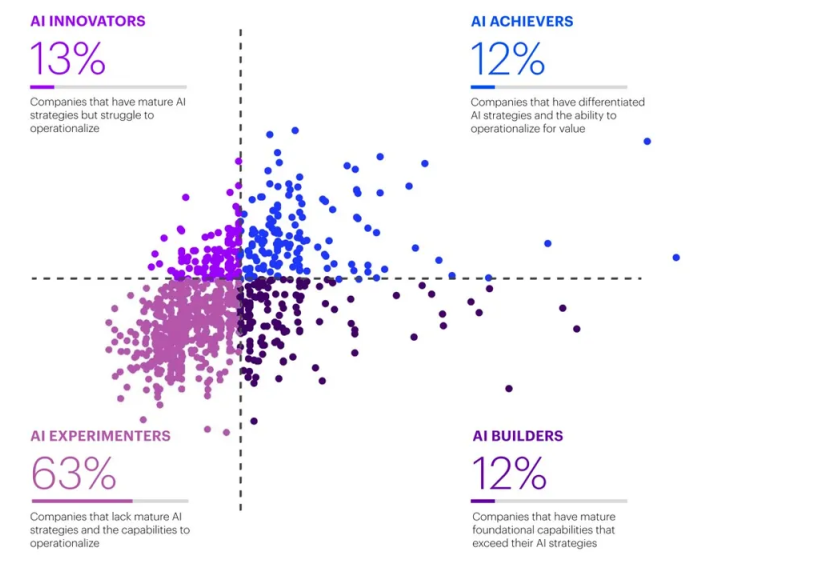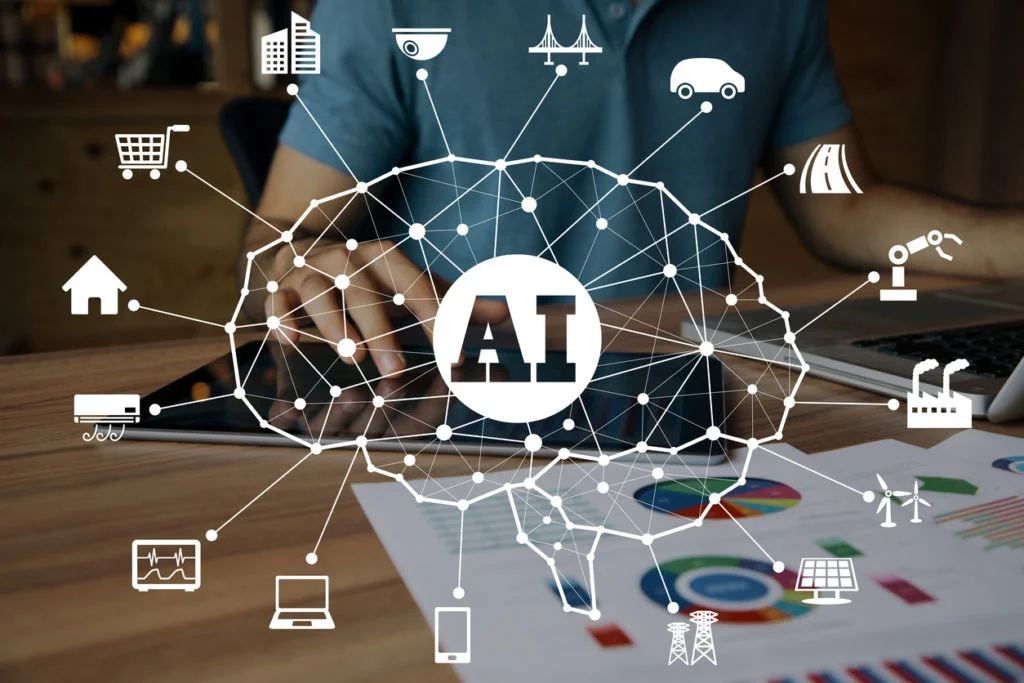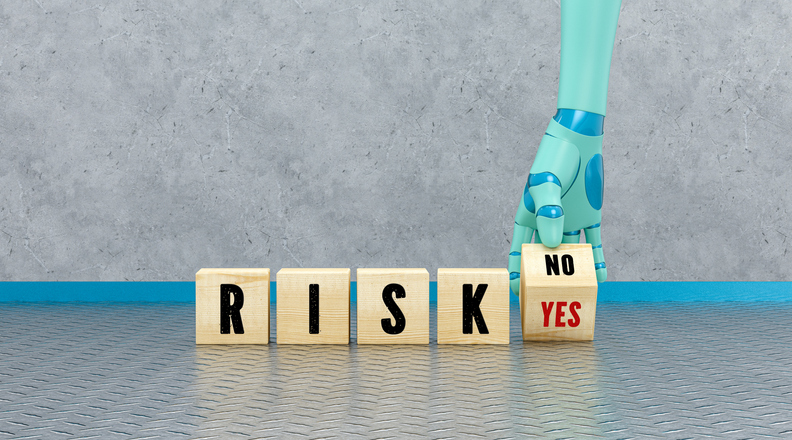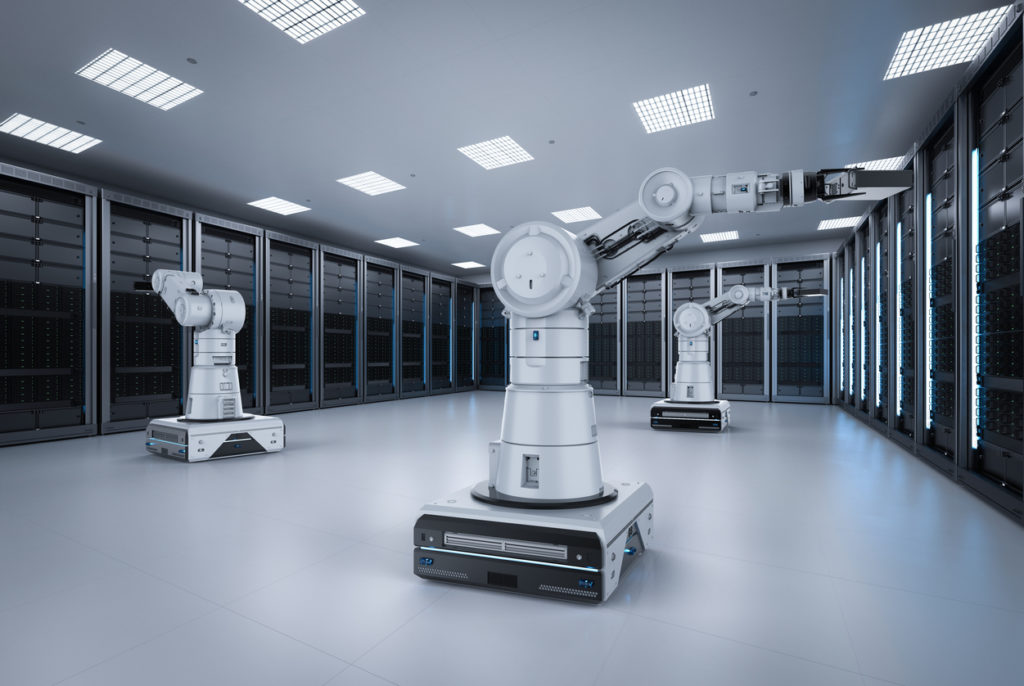Artificial Intelligence (AI) is one of the fastest-developing technologies today. From the healthcare and food industry down to security systems, almost all businesses are adopting the use of AI. People are addressing real-time problems and coming up with immediate solutions to resolve the issues using AI.
Such advanced features make AI worth investing in. In fact, most industries have already adopted AI in one way or another. But what is the extent of the use of AI in organizations? And what is AI maturity? If you’re wondering the same, keep reading to find an answer to all your questions and more.
The Scope of AI in Organizations
Most organizations today are heavily relying on AI to improve customer experience and increase business efficiency. But despite the advancements, most companies that have adopted AI systems have only seen the tip of the iceberg.
From 2018 to 2021, more than 2000 corporations in the world with the highest market cap have onboarded AI. Consequently, these companies experienced an increase of almost 40% in share prices. However, it is important to note here that out of all the 2000 firms; most are not AI Achievers.
Companies that have fully integrated and mastered the art of AI (became AI Achievers) are enjoying almost 30% growth in revenues as compared to firms that are only starting or in the process of onboarding AI. This figure was even higher in the pre-covid era when revenue increased by almost 50%.
Currently, there are only 12% of organizations that are using AI systems to their maximum capacity. However, by 2024, this figure is likely to increase to 27%, which is a positive indication, to say the least.
AI maturity will eventually take over all kinds of businesses and organizations. Slowly and gradually, all businesses will start upscaling, and the goal would be AI maturity till the status of AI achievers is attained. This fact can be backed by the incorporation of AI into the cloud systems of almost 75% of the world’s biggest firms.
Out of all these organizations, almost 30% of the AI initiatives are taken to enhance customer experience and to improve R & D for new product launches. More than 40% of the companies experienced benefits beyond their expectations.
With such rapid adoption and positive results, AI may become an integral part of businesses far quicker than the estimated period.
What is AI Maturity?
Now that you fully understand the importance and scope of AI in organizations, let’s understand what AI maturity truly means.
The degree to which companies have adopted and mastered AI capabilities in order to enhance organizational efficiency, customer and employee experience, etc., is termed AI maturity. The underlying goal is to use the best practices and the right combinations to ensure a company flourishes.
In simpler terms, AI maturity defines the level of AI implemented and the room a company has for adopting, learning, and mastering new AI-based technologies. Using AI maturity frameworks, companies can analyze the level of readiness of their organization for adding new intelligent systems. This also gives companies a roadmap to follow for investing in new skills, infrastructure, and technologies.
It is important to fully comprehend AI systems and master their capabilities so that they become an inherent part of an organization’s culture and strategy.
When it comes to AI capabilities, two things must be considered. These include:
- Foundational capabilities
- Differentiation capabilities
Foundational capabilities include the use of cloud tools, data-driven architectures, and data platforms that allow companies to keep up with their competitors. Simply put, foundational capabilities are the foundation of AI systems, but they aren’t unique solutions.
On the other hand, differentiation capabilities are much more advanced. These capabilities allow companies to become more innovative, which sets them apart from the rest. Differentiation capabilities add a touch of personalization. For instance, self-driving cars aren’t something that every automobile company can create. Tesla is the most well-known company for producing such vehicles, with other companies following behind. The unique and innovative use of AI is what defines an organization’s differentiation capabilities.
AI Maturity Scales in Organizations
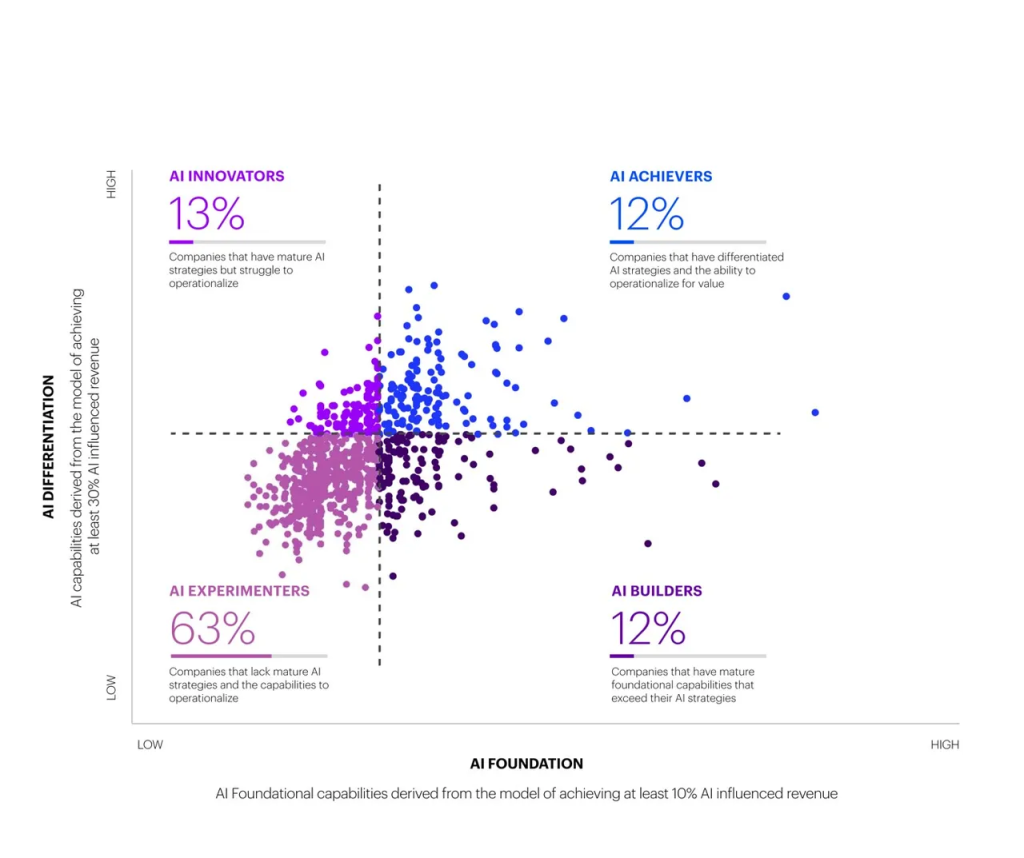
When it comes to AI maturity scales, they can be categorized into 4 groups (see Accenture’s diagram above). The organizations are classified based on the level of AI implemented. This can be determined by looking at an organization’s score in the foundational and differentiation capabilities of the AI system currently in use. That being said, let’s take a look at the AI maturity scales in organizations.
AI Achievers
AI achievers are those that excel at implementing both AI foundational and differentiation capabilities. These companies are the ones that have mastered the art of AI and have matured their organizations enough to handle advanced solutions. Moreover, these companies can see a significant increase in revenue alongside enhanced customer and employee experience. Currently, only 12% of companies worldwide have attained the status of AI achievers.
A healthcare facility that handles patient information, makes diagnoses, administers treatment, and even uses robotic surgeries leveraging intelligent AI systems can fall under the category of AI achievers.
AI Innovators
AI innovators are companies that are more focused on working on the differentiation capabilities of AI systems but only have an average score on the foundational capabilities. While these companies are likely to come up with new and innovative solutions, it is essential that they strengthen the AI foundational capabilities to benefit from the benefits fully and eventually achieve the status of AI achievers. Today, approximately 13% of companies have the status of AI innovators.
A food delivery service that optimizes the best routes for delivery to ensure the food gets delivered in the fastest way possible but does not offer real-time updates to customers is the perfect example of AI innovators.
AI Experimenters
AI experimenters are beginners who have just started implementing AI technology in their organizations. They are average in both AI foundational and differentiation capabilities, but they have the most room for improvement. Out of all the other groups, the share of AI experimenters in the world is the highest at 63%.
An AI experimenter can be a call center that uses AI-based systems to make human-like calls to customers to schedule and confirm appointments.
AI Builders
AI builders are groups of organizations that have excellent scores in foundational capabilities. However, they are lacking in differentiation capabilities. A strong foundational capability indicates organizational maturity, which means these companies have a high chance of becoming AI achievers. Currently, only 12% of companies have achieved the status of AI builders.
An office that uses AI-based video analytics for security purposes is an example of an AI builder. Such companies only have entry-level AI solutions.
Organizational Performance of AI Achievers
After looking at the AI maturity scales in organizations, it would be safe to say that all AI innovators, experimenters, and builders are striving towards one goal, i.e., to become AI achievers. Why? Simply because AI achievers are the ones that have fully experienced the benefits of a mature AI system.
Today, many companies are unknowingly or knowingly adopting small AI traits. For instance, a food delivery service optimizing routes for delivery is also an AI application. Upscaling these traits will give them room to grow until they eventually become AI achievers.
To better understand why becoming an AI achiever is essential, let’s look at their organizational performance.
Higher Overall Performance
One of the most distinguishing features of AI achievers is that their performance is always higher than other groups. The main reason for this is not simply because they excel at functional and differential capabilities but how they use different combinations of these capabilities to gain strength, which results in improved process flows, customer experience, and organizational strategies. Since these companies have mastered all AI capabilities, they can combine the strengths of different elements for enhanced performance than all the other groups.
Upscaling Pilots to Enhanced Productivity
Most AI experimenters are only scratching the surface of AI capabilities. They are open to experimenting with different strategies to test out the results. Eventually, when they get desired results after repeated tests, they start implementing them into the organizational workflow.
But AI achievers are way past this stage. They upscale AI pilots and use the strategies to solve problems as opposed to keeping them in the experimental phase. AI achievers are always consistent with their innovations and can immediately use AI pilots for enhanced productivity. This key characteristic is what sets them apart from AI experimenters.
Solutions That Go Beyond Financial Aspects
One of the primary benefits of AI systems is cost savings and increased revenue. Most organizations that adopt AI are looking for ways to improve financial metrics. But AI achievers look beyond these aspects.
Compared to other groups, AI achievers also focus on the environmental and social aspects as well. For instance, a company that has become an AI achiever will most likely be using eco-friendly solutions. Such as eliminating greenhouse gas emissions, reducing carbon footprint, and using natural resources, as opposed to synthetic ones, which can be detrimental to the environment. In short, AI achievers are more responsible and employ strategies that are beneficial not only to their organization but to society, customers, and the environment.
Such organizations are more likely to earn customer loyalty by offering enhanced experiences and building trusting relationships.
The Bottom Line
The use of Artificial Intelligence to solve business problems and increase operations isn’t new. People have been using these technologies for many years. While more than 2000 organizations are currently using AI systems, not all have matured enough to reach the status of AI achievers.
After the covid-19 pandemic, AI became even more popular, mainly because it became the major factor for the competitive differentiation. However, now it is widely being used to generate higher ROIs and improve employee and customer experiences.
Still, most companies are learning and experimenting. The AI maturity scales in organizations signify the rapid adoption of AI, yet most of them are yet to reach the status of achievers. The majority of the enterprises are AI experimenters (63%), with only a fraction (12%) reaching the status of AI achievers.
However, in the upcoming years, the number of AI achievers is likely to increase, given that companies factor in organizational maturity when adopting AI.
If maturity is disregarded, it can force organizations to stick to conventional methods, which will prevent them from progressing as opposed to their competitors. Do you want to attain the status of an AI achiever? Achievion can help you implement AI solutions that can make your company go up on the AI maturity scale. Contact us today to learn more.



